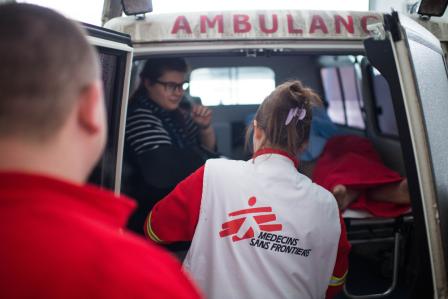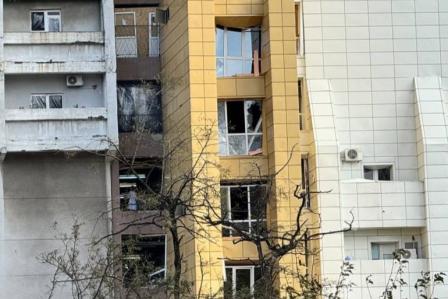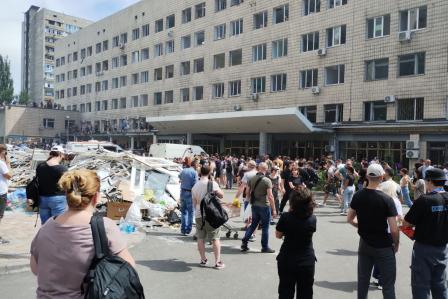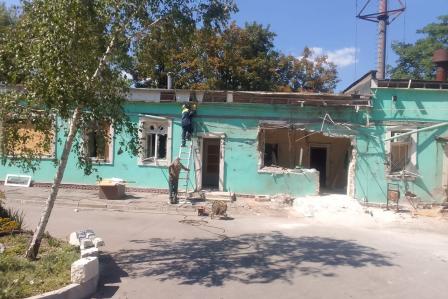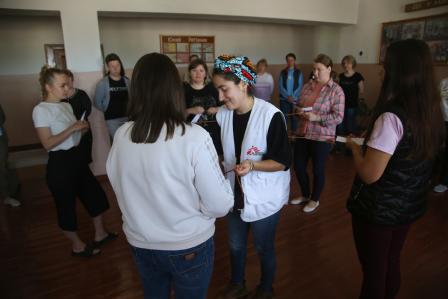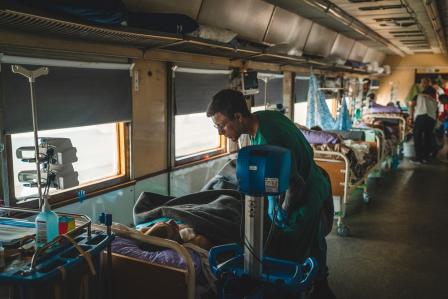Ukraine: The relentless and indiscriminate bombing must cease
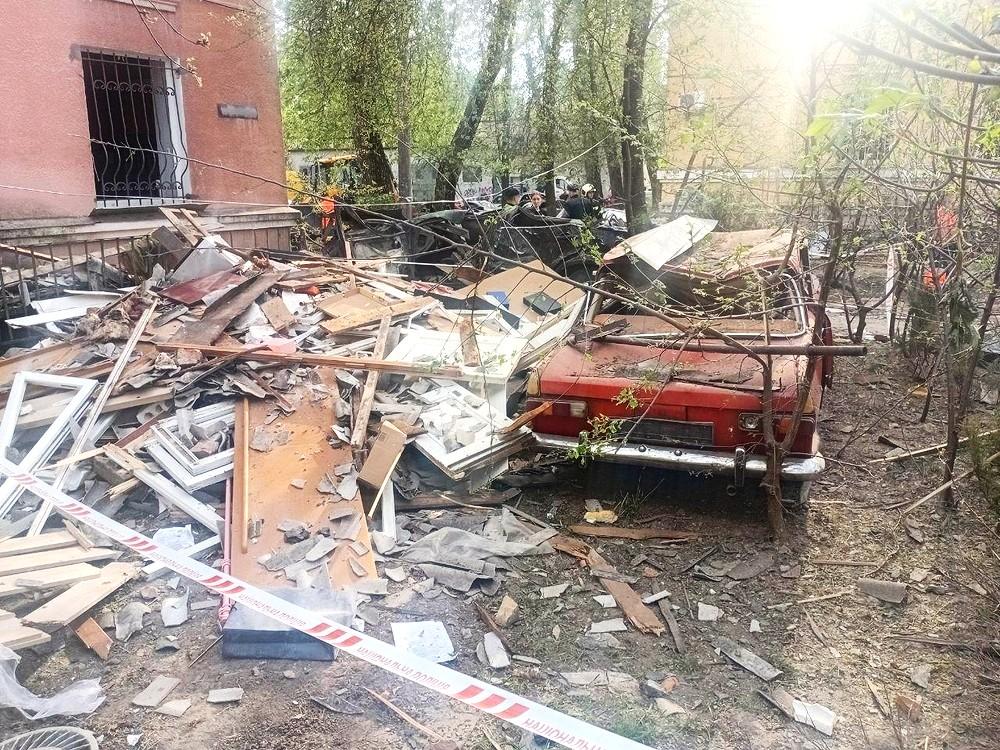
Debris lies in a street following a bombardment by Russian forces in Kyiv. Ukraine, 24 April 2025. © MSF
Last night Kyiv faced yet another wave of massive bombardment. This follows devastating attacks in Dnipro region, and Kryvyi Rih, all of which resulted in mass casualties. The massive use of force employed by Russian forces across Ukraine is relentless. Hospitals, residential buildings, humanitarian workers, patients are not spared; with the use of drones and long-range missiles, no-one in the country is safe.
Last night’s strikes in Kyiv saw a missile hit a residential building. Emergency services are still searching through the rubble for survivors. Twelve people have been confirmed killed, and over 70 injured—among them, six children. Many remain in hospital, with life-threatening injuries.
Kyiv is home to coordination offices of Doctors Without Borders/Médecins Sans Frontières (MSF) in Ukraine. Doctors Without Borders teams live and work in the city.
Right now, our staff—like millions of others—face almost nightly bombing raids. Last night some of our colleagues spent the night in metro stations, others had no choice but to wake their children and shelter at home as best they could, while explosions shook the ground, and rattled windows. No-one is safe, people are exhausted and many live in fear.Thomas Marchese, Programme Director
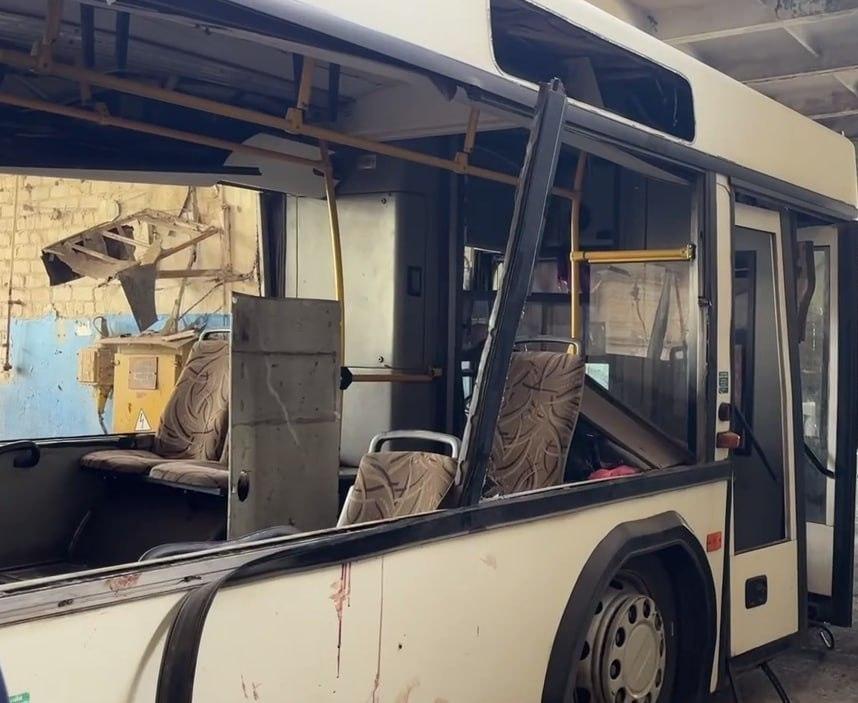
A bus attacked by a drone in the Marhanets region on the night of 23 April. Ukraine, 24 April 2025. © MSF
This latest attack in Kyiv continues a pattern of bombardments in Ukraine: attacks on residential buildings, hospitals, and schools occur daily. On 5 April, Doctors Without Borders ambulance teams responded to a strike in Kryvyi Rih, where 20 people were killed, including nine children. One survivor referred by Doctors Without Borders paramedics was just seven years old; she suffered a fractured hip, haemorrhagic shock and shrapnel wounds.
On 23 April, a drone strike by Russian forces hit a bus in Marhanets, Dnipro region, reportedly killing nine people and wounding 50. Doctors Without Borders ambulance teams supported the Ministry of Health in the mass casualty plan, referring patients suffering from significant blood loss and shrapnel wounds.
Around 2,000 medical facilities have been damaged or destroyed since the war in Ukraine escalated in 2022. In recent months, hospitals across the country have faced multiple mass casualty events, and have even become targets, particularly in areas near the frontline, where the health system is already under immense pressure.
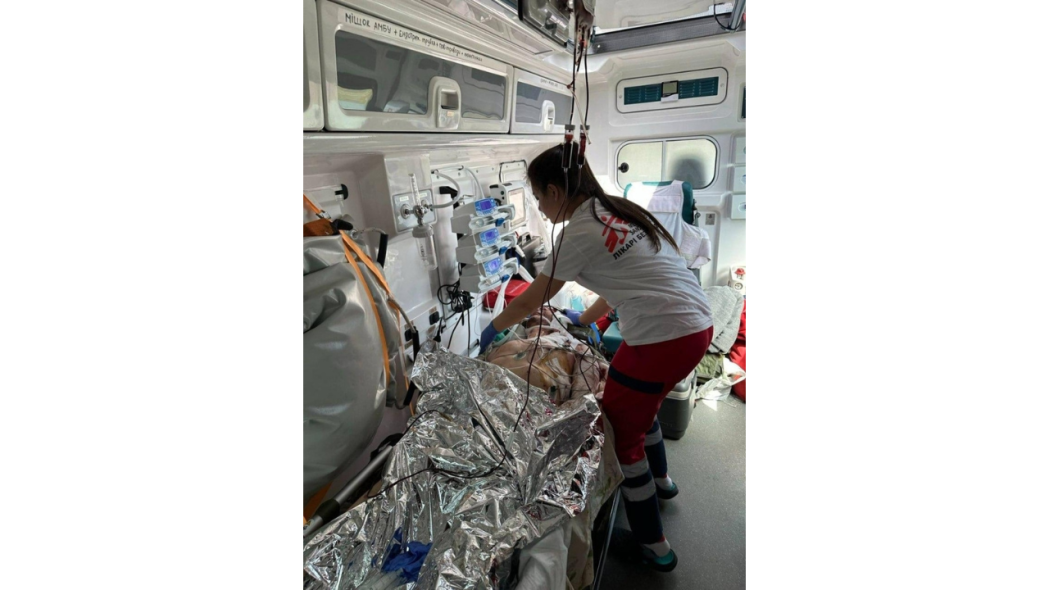
Doctors Without Borders team responding to the mass casualties from the Marhanets bus bombing. Ukraine, 24 April 2025. ©MSF
The scale of attacks people endure are huge, our mobile clinics have seen a rise in cases of heart attacks and strokes—conditions directly linked to prolonged stress. In Ukraine, no part of daily life is untouched by the war. People can be hit while commuting, buying bread, or dropping their children at kindergarten. There’s no warning, no safe place—just seconds between normal life and extreme violence. Civilians must never be targets.Thomas Marchese, Programme Director
Doctors Without Borders paramedical teams are currently supporting emergency responses in Sumy, Dnipropetrovsk, Kharkiv, Kherson, and Mykolaiv regions, while surgical teams continue to provide life-saving care in hospitals close to active conflict areas. Rehabilitation care, including physiotherapy and mental health care continue in Cherkasy and Odesa, while in Vinnytsia the mental health team provides treatment for post traumatic syndrome caused by the war. Among medical facilities in Ukraine, one thing is a constant: the influx of wounded never truly stops.
Will you support our emergency response work?
Help us provide lifesaving medical care during emergencies by making a donation today.
